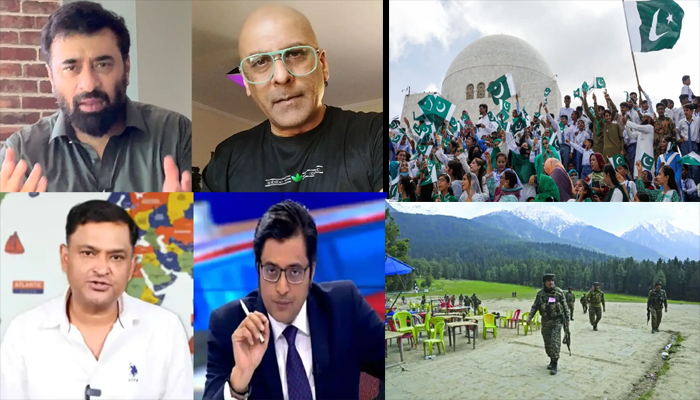KARACHI: Amid rising diplomatic and security tensions, the Indian government has blocked 16 Pakistani YouTube channels, accusing them of disseminating content that could allegedly affect national security and public order. The decision, taken on Monday, comes in the wake of the deadly Pahalgam attack and ongoing hostilities between the two South Asian neighbours.
According to The Hindu, the channels were banned based on recommendations from India’s Ministry of Home Affairs. The list includes several prominent Pakistani media outlets and personalities, including Dawn News, Samaa TV, ARY News, Geo News, Bol News, SUNO News HD, GNN, Raftar, Samaa Sports, and well-known journalists such as Asma Shirazi, Muneeb Farooq, Umar Cheema, and Irshad Bhatti. Even former cricket star Shoaib Akhtar’s channel and comedian Shehzad Ghias’s podcast ‘The Pakistan Experience’ have been banned from viewership in India.
Anyone attempting to access these channels from within India now sees a standard YouTube message indicating the content is “not available due to an order from the government related to national security or public order.”
Indian journalist Aditi Agarwal, who covers tech and digital policy, noted that it remains unclear under which specific law or regulation these bans were enforced. No official statement has yet been issued by Pakistani authorities on the matter.
In a related development, India’s Ministry of External Affairs has objected to the BBC’s terminology in reporting the Pahalgam attack. A formal complaint was lodged with Jackie Martin, head of BBC India, for using the term “militants” instead of “terrorists.” However, a BBC spokesperson defended the coverage, stating the report was “accurate, impartial, and responsible.”
Meanwhile, Pakistan’s National Cyber Emergency Response Team (NCERT) issued a crucial advisory to media, freelance journalists, and social media content creators, warning against the dissemination of sensitive information related to national security.
The advisory noted a growing trend of videos and commentary revealing troop movements, military deployments, and other sensitive content, which it said could severely compromise operational effectiveness and national security.
NCERT cautioned that even unintentional disclosures, such as mapping coordinates or terrain visuals, could assist hostile forces in refining strategies or planning ambushes. It also warned against the dangers of deepfakes and disinformation, which could incite public unrest or mislead the public during times of crisis.
The agency urged media professionals to avoid filming military activities, and asked the public not to amplify unverified military-related posts online. A separate advisory also warned of a possible increase in state-sponsored cyberattacks targeting Pakistani institutions.
With the geopolitical atmosphere growing increasingly volatile, digital platforms are becoming a new battleground for influence and information warfare.









